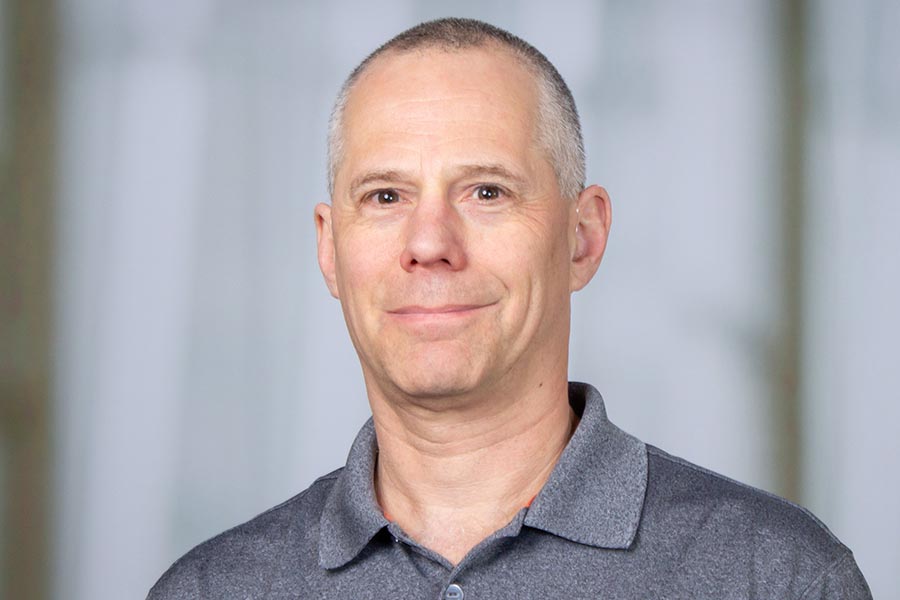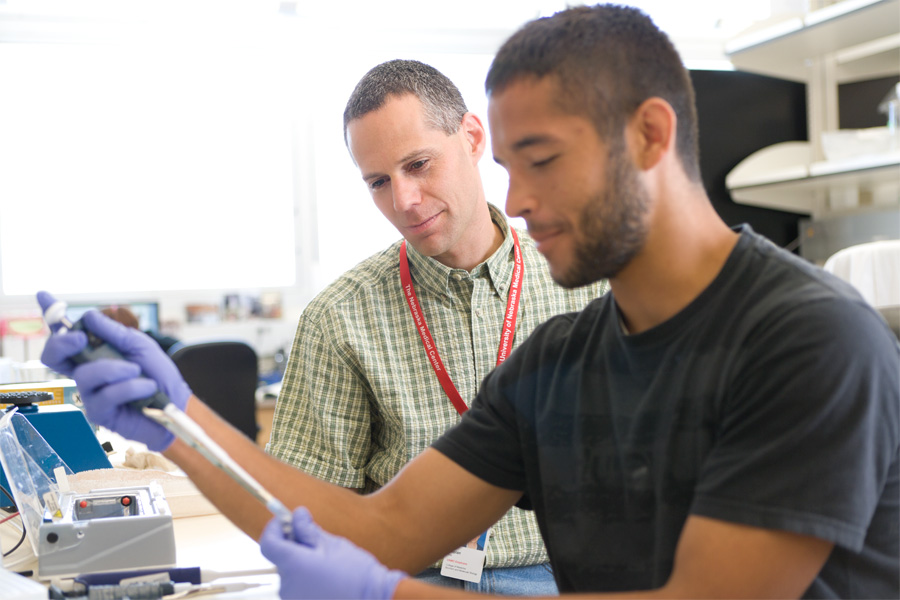Steve Caplan, PhD
Professor, UNMC Department of Biochemistry and Molecular Biology
Vice Chair for Administration
Director, NIH T32 Fundamental Training Program in Biochemistry and Molecular Biology
Research Infrastructure Program Coordinator, Nebraska INBRE Program

Steve Caplan, PhD, is a professor in the UNMC Department of Biochemistry and Molecular Biology.
Awards Dr. Caplan has received include:
- Thomas Maciag Award, 2012, a national award for combined research excellence and mentorship.
- UNMC's Outstanding Faculty Mentor of Graduate Students Award, 2011.
- UNMC Distinguished Investigator Award, 2010.
- UNMC New Investigator Award, 2008.
Research
The Caplan laboratory prides itself on the success of its graduate students and lab members. Of the 11 PhD students and one master's student who have graduated, four have received the very top UNMC honor, the Thomas Jefferson Award for ingenuity and extensive productivity. All students have graduated with a minimum of two strong first-author publications in the course of their dissertation research, with some students authoring or co-authoring as many as a dozen papers and reviews.
More importantly, Caplan laboratory alumni have made important scientific contributions that have been recognized nationally and internationally. Students from the lab have gone on to the very top laboratories at elite institutions for post-doctoral studies, such as Harvard, Columbia, University of California San Diego, University of Michigan and the National Institutes of Health, where they have received prestigious fellowships.
Six former students and one former post-doc have become faculty or launched careers at academic institutions, and five other students have positions in the biomedical industry. One former post-doc has a position as a senior clinical director for medical education.
In our laboratory, we are convinced that basic research driven by curious and dedicated researchers will lead to significant biomedical discoveries, as detailed in Dr. Caplan's book, Today's Curiosity Is Tomorrow's Cure. Our philosophy is that research should be driven by the questions that are asked, and not by the techniques that are commonly used. For these reasons, students in the Caplan laboratory will be exposed to a wide range of new and evolving techniques in biochemistry, molecular, structural, cell biology and biophysics, and will likely have opportunities to collaborate with multiple laboratories on campus, in the US and abroad.
Current Lab Members
- Naava Naslavsky, PhD (Hebrew University), co-investigator.
- Devin Frisbee, doctoral graduate student.
- Gunjan Misri, doctoral graduate student.
- Bazella Ashraf, doctoral graduate student.
- Ajay Murokonda, doctoral graduate student.
- Rahit Dewanji, doctoral graduate student.
Student Rotation Opportunities Available
Rotation opportunities are available for highly motivated students. Contact Dr. Caplan for additional information.
The Caplan laboratory is interested in understanding the basic mechanisms and pathways that control the movement of receptors, proteins and lipids from point to point within the cell—a process known as membrane trafficking or vesicular transport.
Because the laboratory follows discoveries wherever they lead, research in the lab has expanded to studying the actin cytoskeleton and regulation of actin polymerization, the process of cytokinesis and cell division, the study of primary cilia and their biogenesis, centrosome biology, and most recently, mitochondrial dynamics and their continual fusion and fission.

Current Projects
The Caplan laboratory is interested in understanding the basic mechanisms and pathways that control the movement of receptors, proteins and lipids from point to point within the cell.
University of Nebraska Medical Center
985870 Nebraska Medical Center
Omaha, NE 68198-5870
Lab Contact: 402-559-7559